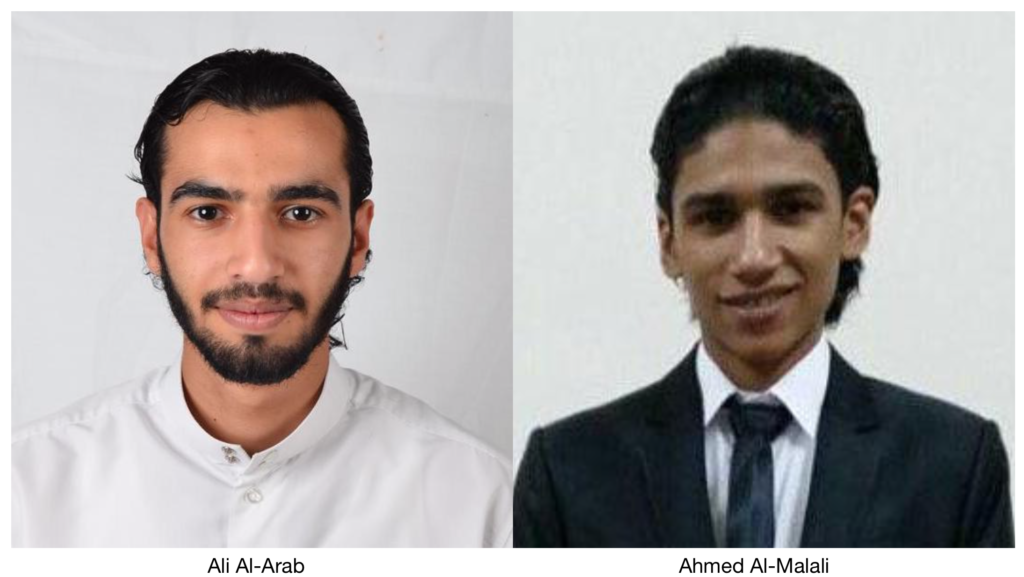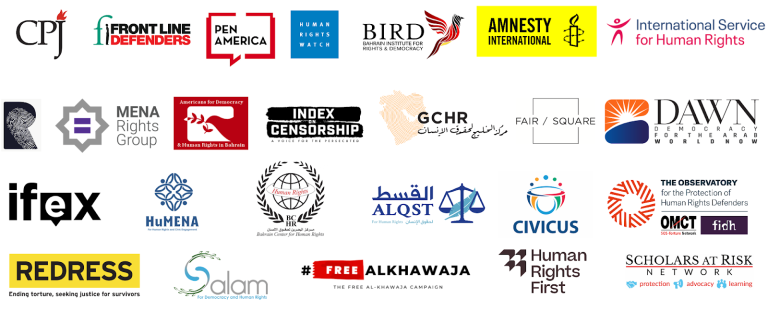26 July 2019 – Two men are likely to be executed tomorrow in Bahrain, two days after the House of Lords questioned the British Government over the risk that UK taxpayers are funding human rights abuses and executions in the country.
Ali AlArab (25) and Ahmed AlMalali (24) were convicted and sentenced to death in a mass trial alongside 58 other men on 31 January 2018. Upon arrest, Ali was ordered to kiss the boot of an office and, when he refused, was repeatedly beaten. Later that day, he was taken to the prison clinic in a wheelchair. He was then coerced into signing a confession while blindfolded and subject to torture including electric shocks, severe beatings, and the removal of his toenails. During his arrest, Ahmed was struck by at least two bullets in his hand and had his leg broken. The bullets were only removed 23 days later. He was held incommunicado for a month before being forced into signing a false confession. He was then sentenced in absentia.
In May 2019 – after the two men exhausted all their legal appeals – five UN experts appealed to Bahrain to halt their executions amid “serious concerns” over the safety of their convictions and the fact that they haven’t received a fair trial.
On Wednesday in the House of Lords, two peers questioned the UK Government over the independence of its human rights assessments of Bahrain, the failure of the country’s oversight bodies and the risk that UK taxpayers are funding the death penalty in the country.
During the session, Lord Collins of Highbury said: The fact is that the verdict of the UN Committee Against Torture was that UK-funded human rights oversight bodies in Bahrain are not effective. UK taxpayers’ money is being used and leading to more executions [in Bahrain] than ever before.
UK assistance to Bahrain is funded through the controversial Integrated Activity Fund. The Government doesn’t provide breakdowns or details for this spending so it isn’t known exactly how much UK taxpayer money is given to Bahrain, or for what purpose.
Ali and Ahmed’s families received a phone call from the prison asking them to attend a “special visit” this afternoon. The last time that family members of death-row inmates were notified of a similar visit in January 2017, the three individuals concerned were executed a few hours later.
This morning human rights BIRD found out that authorities at Jau Prison have tripled the presence of security officers and riot police in each building and will suspend phone calls and family visits for the wider prison population. In January 2017 the families of Abbas al-Samea, Ali al-Singace, Sami Mushaima received similar calls from the prison. The three men were executed by firing squad early in the morning.
According to Article 330 of Bahrain’s Criminal Procedure Code, relatives of those scheduled for execution will be permitted a final visit “on the date fixed for the execution”, before the sentence is carried out.
Commenting, BIRD’s Director Sayed Ahmed Alwadaei, said: “Ali and Ahmed were brutally tortured and forced to sign false confessions, yet their executions now seem inevitable. It appears that the Bahrain government planned this meticulously, timing the executions to coincide with US, EU and UK legislative recesses in order to avoid international scrutiny. They must not be able to get away with this. The international community must do all it can to prevent these executions going ahead.”





